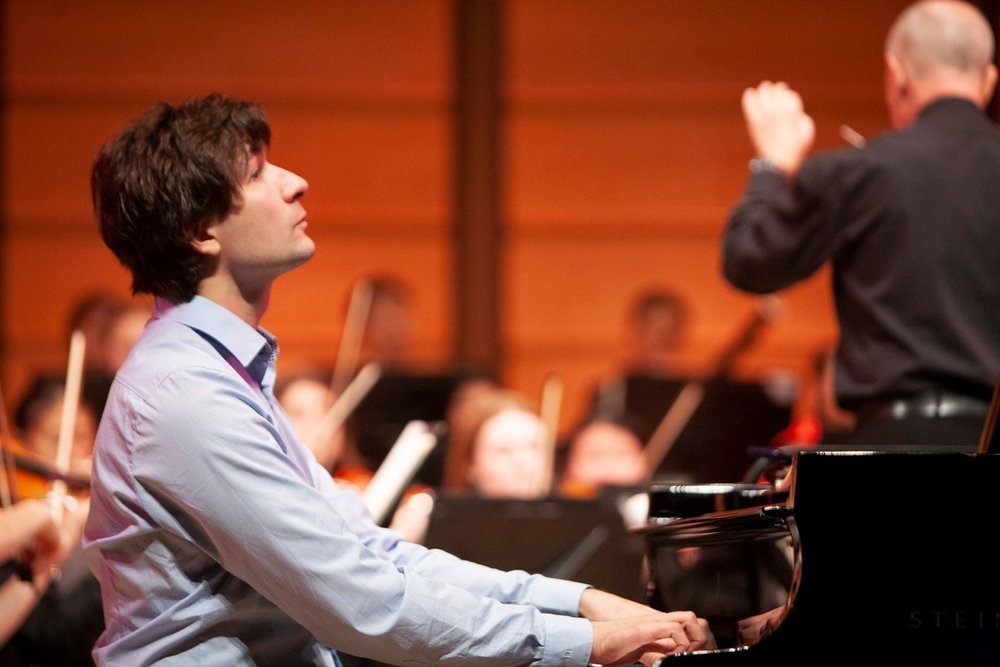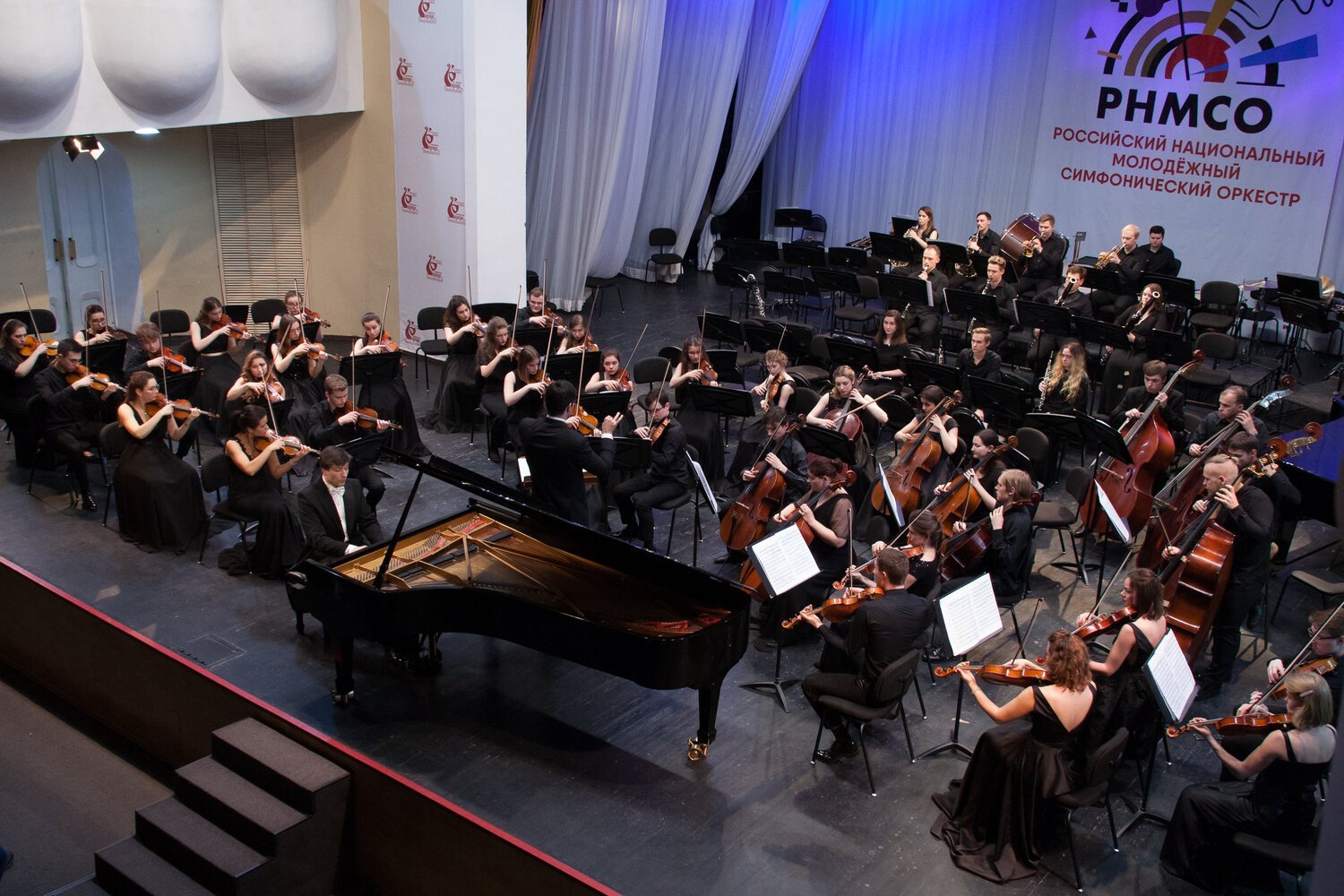
Concert pianist Konstantin Shamray knew the house in Adelaide, Australia, was for him when he saw the address — Railway Ave.
That is because Shamray loves trains and the house is not far from the tracks.
"I loved that. I immediately knew; it had my name on it."
Hearing the trains every day is a reminder of growing up in Siberia where his grandfather worked on electrifying a section of the Trans-Siberian railway.
"We used to catch those trains together, so I have always loved trains."
It is not the only obsession Shamray has. He loves gardening and also planes — nothing is better than a trip to the airport to watch planes taking off and landing.
Quite fitting given the pianist has spent much of his professional life flying around the world to perform. And it was a flight to Australia to perform in the Sydney International Piano Competition that changed his life.
He is the first and only competitor in the 40-year history of the competition to win both first and People’s Choice prizes, in addition to six other prizes.
That led to concert tours in Australia and even a visit to New Zealand, his first and only until now.
From then Shamray found himself spending more and more time in Australia to the point where he was living there part-time.
However, he moved to Germany to study at the Hochschule fur Musik in Freiburg, Germany, with Prof Tibor Szasz. He won first prize at the 2011 Klavier Olympiade in Bad Kissingen and in 2013, following chamber recitals with Alban Gerhardt and Feng Ning, at the Kissinger Sommer Festival he was awarded its coveted Luitpold Prize for "outstanding musical achievements".
But he could not shake his love of Australia, and moved to the country fulltime when he finished his degree in 2015.
Shamray has always found Australians to be a welcoming people.
"I’ve embraced the culture at the same time bringing my own cultural [influence] and this country has been very welcoming of that. I’ve never felt a stranger or lonely in this country."
He settled in Adelaide, where he completed his PhD studies at the University of Adelaide’s Elder Conservatorium of Music and also lectured in piano in between travelling to perform with the likes of the Russian National Philharmonic, the Mariinsky Theatre Orchestra, Moscow Virtuosi, Orchestre National de Lyon, Prague Radio Symphony Orchestra, Belgrade Philharmonic Orchestra, Sydney Symphony, and Melbourne Chamber Orchestra under the baton of distinguished conductors including Vladimir Spivakov, Dmitry Liss, Tugan Sokhiev, Nicholas Milton and Alexandr Vedernikov.
When Covid hit and he could no longer travel he settled into life Down Under and became an Australian citizen.
At the end of this year he is moving to Melbourne where he has a new teaching position as a senior lecturer.
"It’s a bigger city, different environment."
Before he moves he is coming to New Zealand for a concert with the Dunedin Symphony Orchestra, his first visit to the city.
While Dunedin’s audiences have not heard the DSO play Tchaikovsky’s Piano Concerto No 1 for about 20 years, it is one of the most famous concertos in the piano repertoire and one Shamray has played many times.
"It is one of my favourite concertos to play. Even though it is popular, it does not lose any beauty or value for that.
"I’m looking forward a lot to playing it again."
Works like that are among the reasons Shamray loves the piano which he has been playing since the age of 7.
"The piano is universal. It’s an orchestra at the same time. I always like the number of colours it can get."

"I’d go around the flat humming all the time apparently, my mother said."
Shamray did not like going to kindergarten so when his mother suggested he go to music school instead, he grabbed the opportunity.
"I started playing the piano and loved it."
Starting playing at 7 might be considered old these days but was not too old, he says. But he was like many children and needed encouragement to practise.
"My mum was tough on that and I think kids need routine. It’s important."
He went on to study in Moscow at the Russian Gnessin Academy of Music with professors Tatiana Zelikman and Vladimir Tropp,
While the piano is a solo instrument requiring a lot of rehearsal time alone, he describes himself as an extrovert.
"I love talking to people looking for connection."
He thinks the time spent alone leads to his desire to communicate with others.
"As a kid I was always jealous of the kids who played in the orchestra while we pianists sat and practised alone. It’s how you offset your lonely time."
As a result he also enjoys performing chamber music. His collaborations have included tours with the Australian String Quartet, the Australia Piano Quartet, Kristof Barati, Andreas Brantelid, Li Wei Qin and Leonard Elschenbroich.
Another reason he loves the piano is its extensive repertoire.
"It is endless."
He also enjoys the challenge of performing.
"I personally love this feeling of having no idea how it will go, even if you are really prepared. The unknowns of it is very beautiful, you don’t know how it will go; sometime it will go right in the moment."
Picking a top performance is difficult as Shamray is always thinking about the next concert and how to improve.
"Each one could be better, that is the insanity of being a performing artist. There is always something to do better."
Having to perform on unknown pianos also does not faze him.
"It’s an adventure and I’m quite cool with that. For some reason I have played some of my best ones on not very good pianos, maybe trying to overcome the imperfections of the piano."
Not one for superstitious pre-concert routines although admitting to often getting quite nervous before performing, Shamray says he does not drink coffee on the day of a performance.
"It sends my anxiety into space."
Instead he goes with the flow. If he has time he will practise in the morning and have a one-hour rest or nap before warming up for a concert. But if he only has a short time to prepare, he will go for a walk.
"It varies."
TO SEE
Tchaikovsky’s Piano Concerto No 1, Dunedin Symphony Orchestra, Dunedin Town Hall, December 2.











